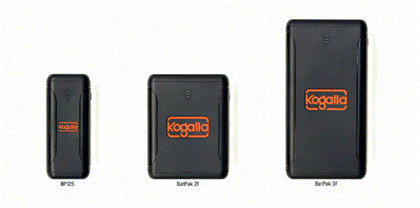
The Importance And Requirement Of Having A Representative With Full Settlement Authority At Mediation
October 29, 2018
This article is originally a publication of Subrogator, Fall/Winter Issue 2018. Subrogator is owned and produced by the National Association of Subrogation Professionals. Legal opinions may vary when based on subtle factual differences. All rights reserved.
Mediations are one of the most common and effective forms of Alternative Dispute Resolution. They typically occur with an attorney, a party representative and a mediator all present at the same location. Most mediations follow a standard procedure that begins with the mediator providing a short explanation of the mediation process, followed by an opening statement by the Plaintiff and Defendant, and then lead to the parties breaking off into caucus where the mediator will meet with each attorney and party representative to begin the negotiation process.
Many times, we offer to mediate the matter before filing a lawsuit. In these situations, the mediations are not court-ordered and are typically dictated by the choices of the involved parties (unless pre-suit mediation is required by contract). However, once a matter is in litigation, the mediation process is commonly required by court order and is governed by the applicable Rules of Civil Procedure. In most scenarios, each state has a mediation requirement before a case can go to trial. The big difference between pre-suit mediations and mediations during litigation that are required by Court Order or the Rules of Civil Procedure is that mediations during litigation typically require that a representative with full settlement authority be present at the mediation session.
In the past, it was not uncommon that at some point during the mediation, a party would tell the mediator that it must make a “phone call” to obtain additional authority to settle a case. It was also common to have a local adjuster attend the mediation while the person with settlement authority would attend the mediation by phone and would provide settlement authority via phone calls throughout the mediation process. In recent history, many states have taken steps to avoid this situation by requiring someone with “full settlement authority” to attend the mediation, “in-person”. So, if a party decides to send an independent adjuster to attend the mediation as the “party representative”, it is necessary that the independent adjuster has “full settlement authority” to resolve the case. More often than not, mediators are now beginning mediations by asking the party representative at the start of the mediation if he/she has “full settlement authority” to resolve the case. It is recommended that attorneys prepare their party representative for this question so that he/she is not caught off guard.
In 2012, Florida Rule of Civil Procedure 1.720 was amended to clearly set forth who must attend a mediation. 1.720(b) states that a party is deemed to appear at a mediation conference if the following persons are physically present:
- The party or a party representative having full authority to settle without further consultation;
- The party’s counsel of record, if any; and
- A representative of the insurance carrier for any insured party who is not such carrier’s outside counsel and who has full authority to settle in an amount up to the amount of the plaintiff’s last demand or policy limits, whichever, is less, without further consultation.
So, for a subrogation action, assuming that the only Plaintiff is the subrogating carrier, it is only necessary that the attorney and the subrogation client attend the mediation. However, the representative of the subrogating carrier absolutely must have “full authority to settle without further consultation”. In the situation of an adjuster who needs to obtain settlement authority from his/her manager before mediation, this makes it extremely important that the subrogation attorney fully brief the subrogation adjuster on all of the possibilities that might arise at mediation so that the attending adjuster can be fully prepared to negotiate freely as the mediation moves forward. If a party representative needs to call his/her manager for additional settlement authority, that party will be violating Rule 1.720.
However, these new rules don’t require an employee of the subrogating carrier to attend the mediation. The carrier is still permitted to send an independent adjuster or other representatives. For example, Florida’s Rule 1.720(c) defines a Party Representative Having Full Authority to Settle as follows:
A “party representative having full authority to settle” shall mean the final decision maker with respect to all issues presented by the case who has the legal capacity to execute a binding settlement agreement on behalf of the party.”
Therefore, as long as the party representative can fully negotiate at mediation, and sign the settlement agreement on behalf of the insurer, that party will be in compliance with Rule 1.720. The language in Florida’s Rule 1.720 is similar to the rules adopted in many states across the country. In addition, you will find this language in many federal court orders requiring mediation as part of its trial order.
It is important to understand that in many jurisdictions, the handling attorney bears the burden of ensuring compliance with the rules regarding mediation. Many states have taken steps to require attorneys to file signed notices with the court indicating that a party representative with “full settlement authority” will be attending the mediation. For example, in addition to the above, Florida’s Rule 1.720 mandates that ten days prior to appearing at a mediation conference, each party shall file with the court and serve upon all parties a written notice identifying the person or persons who will be attending the mediation conference.
While these requirements place a burden on the subrogation attorney to ensure sure that his/her client named in the notice will have the necessary settlement authority, it also, in theory, makes certain that the representative for the opposing party will also have “full settlement authority” to resolve the case.
If you find that the representative for the other party came to the mediation without “full settlement authority”, there are sanctions that you can seek. However, these sanctions can also be applied to the subrogating carrier should it fail to comply with the “full settlement authority” mediation requirements. If the party attending mediation doesn’t attend in good faith and have “full settlement authority”, the court may penalize that party. For example, Florida’s Rule 1.720(f) states that:
If a party fails to appear at a duly noticed mediation conference without good cause, the court, upon motion, shall impose sanctions, including award of mediation fees, attorneys’ fees and costs, against the party failing to appear.
This rule has also been applied to cases where the attorney appears at the mediation, but doesn’t have a client representative in attendance with “full settlement authority.” While a dismissal of a case based on a party’s failure to attend a mediation and with full settlement authority is rare, most courts will award sanctions such as the cost of the mediation and the opposing attorney’s attendance should a party fail to attend a mediation.
Generally, mediations are more successful if the actual decision-makers are there in person to work with their counsel, the mediator and the opposing party and its counsel to reach an agreement. Mediations are a process, and many times, more like a marathon than a 100-yard dash. Often times, a representative needs to be able to respond to new facts and arguments and to adjust its settlement position in response. Accordingly, if a party truly desires to reach a resolution, there is little reason for it to send representatives to mediation who do not have full authority to settle the case. Mediations are an important part of the litigation process. Many times, they are the first time that the parties (and not just the lawyers) get to meet face to face. Give the mediation process the respect it deserves. Subrogating carriers and their attorneys should work together to ensure that the individuals planning to attend mediation on a client’s behalf are fully advised of the case, and have full authority to settle the case. This will increase the odds that the matter will resolve at the end of the process.



